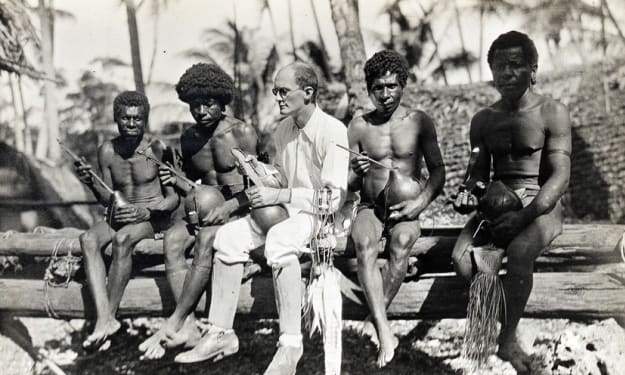
What are gender expectations? Are people generally aware of their behavioral influences during or in prevention of societal tensions due to the breaking of gender norms? Who influenced your gender affiliation? Are these societal expectations good, fair or are gender differences minor all together? These are questions I have hoped to address throughout this essay. By beginning with interviewing I am able to pull a more reliable understanding of how these norms are experienced, expressed, as well as some explanations as to why such norms are persistently perpetuated throughout the culture. I interviewed five individuals and though I will maintain their privacy I will expand a little on their categorical background (L-data) and divulge any possible observer bias due to personal relationships. The first is in her early 20’s, two kids, divorced, home owner with no college education and has a successful career as a nonpolitical government employee ( participant one) and she is an old friend. The second is also in her early 20’s home owner, minimum wage employee (participant two), she is also an old friend. The third is a relative, he is in his early 20’s dropped out of college but has recently returned, works in the club scene and has recently acquired his first apt (participant three). The forth is a Mexican Immigrant that has acquired citizenship, he is in his late 30’s, two children, divorced with employment within a labor field (participant four). And finally the fifth is in her early 20’s, full time university student, with three part time jobs as well as many activities associated with her university (participant five) she is also a close friend.
All participants confirmed that there are societal expectations in association with gender. All excluding participant four admitted to feeling tension in accordance to such expectations. All can recall parents attempting to influence behavior of gender norms and all participants believed they had or are fulfilling their societal expectations. However the most interesting responses occurred when I asked whether these recognized societal roles and their defined gender are good or bad. Participants one and four believed gender roles to be good while two, three and five believed the opposite extreme, that there are no benefits only problems that occur from such norms. To address the final question, I am going to point out some common factors in participant one and four. Both are divorced and both have children, their age and labor associations are at largely different spectrums as well as identified culture. According to functionalist, gender norms are in place to perpetuate the happiness and stability of family and offspring. Considering they both have experienced instability of the family (divorce) as well as have children, one can hypothesize these factors may have influenced their support of norms that can perpetuate unity and cooperation within the family. But why did the other participants feel so strongly about the problems associated with gender norms?
Participant two, three and five all either strongly opposed gender role as a positive societal attribution or was unable to find any positive explanation for such expectations. Two and five and females and participant three is male. Male children are exceedingly aware of their fathers’ approval of gender roles and norms. This means that sense boys are given more independence and opportunity to expand on ideas, they are also pressured a great deal to succeed, maintain admirable aggression (from sports to occupation), remain unemotional as well as enjoy activities that perpetuate these qualities (motor activity related toys, independent play time, sports, and number of available women). So in accordance to participant three’s negative view of gender roles, not staying in school and being slower to attain independence may have greatly affected his societal self-worth as well as create role conflict. Participant three also divulged that he always felt overly pressured to exceed in sport activities to the point of over whelming himself with feeling the need to be popular among girls and succeed educationally. He may reject gender role because he feels somewhat rejected due to these expectations. I must also remind readers that participant three also feels he has fulfilled his gender role which probably coincides with maturity and a better understanding and comfort of one’s own in particular standards.
Participant two and five also strongly opposed the purpose of gender expectations. Participant two noticed and felt it unfair that chorus were divided by societal norms. She claimed she had to do her own laundry and house cleaning but generally her brother did not, while on the other hand, she was never allowed to ride the lawn mower and was made to feel awkward about wanting boy toys or simply wanting to participate in certain ‘boy’ sports. She also stated that this gave her a determination to prove her independence. This is most likely due to the fact she felt she wasn’t equally offered independence or as much understanding when it came to rule breaking. This corresponds with conflict theory in the fact she may feel pressured into allowing a man to be the bread winner, as well as symbolic interactionism in the fact that she felt pressure to conform to her families gender norms even though it cause her some distress. Participant five, on the other hand, did not feel as though she was overly pressured to conform to girly gender norms. She did point out that she felt pressured to succeed academically in order to fulfill her mother’s inability to sustain independent stability. In other words, she feels that sense her mother wasn’t able to succeed in the newer female gender expectations (child rearing and financial breadwinner) that she would be failing her gender expectations if she didn’t accomplish most if not all independently. This is probably a huge underlying factor in her extremely packed schedule and role responsibility. And as a reminder both of these female participants (two and five) felt they are fulfilling or already had fulfilled their gender roles.
I remember when I was only four; I had wanted to join cheerleading because all the other girls in kindergarten were. My mother was immediately upset when I asked and later sat me down to explain to me that just because I’d be a cheerleader, didn’t mean I was allowed to be mean or act better than the other classmates. I remember feeling so confused because I had just wanted to fit in with the other girls. Looking back I can now see that though my mother kept me from fulfilling some female gender expectations by disliking my involvement in associated female activities, it also kept me from relying on gender roles to determine my enjoyed activities. Don’t get me wrong I loved dressing like a princess in the dresses my mom would make and I loved Barbie’s, I also grew to love sports, watching (football and basketball) and playing (wrestling, soccer, karate). I was labeled a tomboy by my teachers as well as my class mates. I often received ridicule for this as well as discouragement.
I high school I participated in the PSEO program, and though my guidance counselor thoroughly supported the other three boys in this as the only girl, I often heard her tell me not to overwhelm myself and persistently tried to convince me to end my PSEO involvement. Luckily I had two parents that never stuck my in a societal gender box and constantly encouraged me to succeed and in some cases rewarded me greatly when I exceeded my male counterparts. Though it caused me a lot of distress depending on my age and vulnerability, it also impassioned me to prove the norms wrong and blow expectations out of the water. Cultures as well as personal goals seem to be the main determinant in perceived gender norms and its expectations. Gender norms are not all detrimental in the long run but as to the actual purpose they achieve in western society seem to be minimal at best and are definitely detrimental when trying to embrace and perpetuate equality.






Comments
There are no comments for this story
Be the first to respond and start the conversation.